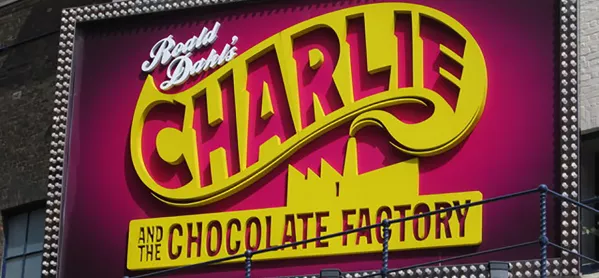“I have a passion for teaching kids to become readers, to become comfortable with a book, not daunted,” the great storyteller Roald Dahl once said. ”Books shouldn’t be daunting, they should be funny, exciting and wonderful; and learning to be a reader gives a terrific advantage.”
Various studies have, of course, demonstrated that advantage, from the 1970 British Cohort Study, which has found that delving into a book is linked to greater intellectual progress in vocabulary, spelling and maths, to the Programme for International Student Assessment (Pisa), which reports that reading for pleasure is more important for children’s educational success than their family’s socioeconomic status.
Jim Rose’s Independent Review of the Primary School Curriculum in 2008, too, highlights a direct link between emotional development in primary children and deep engagement with great literature and storytelling.
Dahl’s passion for encouraging reading has certainly worked wonders with children - and with those who teach them. His Charlie and the Chocolate Factory won the Golden Ticket in our top 100 books that children should read before leaving primary school, as voted for by teachers in a survey conducted by Tes in association with the National Association for the Teaching of English. And joining Willy Wonka in the top 100 are three other Dahl books: Matilda, The Twits and Esio Trot (see our pull-out poster).
Not everyone will agree with our list; some will argue that their favourites are too low down or even omitted altogether. My own beloved Amelia Bedelia doesn’t make it. The book, by Peggy Parish, is about a delightfully literal maid hired by a wealthy family, who misinterprets all the instructions that are given to her. These days I would be called an EAL child, but in my childhood, I was just a foreign girl with a funny name; Amelia Bedelia provided reassurance that I was not alone in not understanding the English vernacular, as well as a few laughs. Dress the chicken? Indeed she did, in a very fetching outfit. Draw the drapes? You guessed it, she sketched a fine picture of the curtains.
But many of our top 100 books are not full of joy and mirth, but are instead dark and full of horror - tales of ferocious monsters, abuse, abandonment and even death. Not what you’d think the average primary child would want to read. But these books serve an important purpose, giving children a safe place where they can take control of troubling subjects, where evil can be glimpsed and then shut within their pages. Reading fiction teaches children how to navigate the journey of life.
So, although it may be tempting to surrender to the delights of Netflix on the dark, winter nights, pick up a book (or 12) instead and escape into these worlds. Whether you’ve got children or you simply want to know what’s out there for your class, finding a book that ignites a real passion for reading could change someone’s life for the better.
To borrow a passionate plea from Mr Dahl: “So please, oh please, we beg, we pray, go throw your TV set away, and in its place you can install a lovely bookshelf on the wall.” A funny, exciting and wonderful time awaits you - not to mention your class - if you do.




